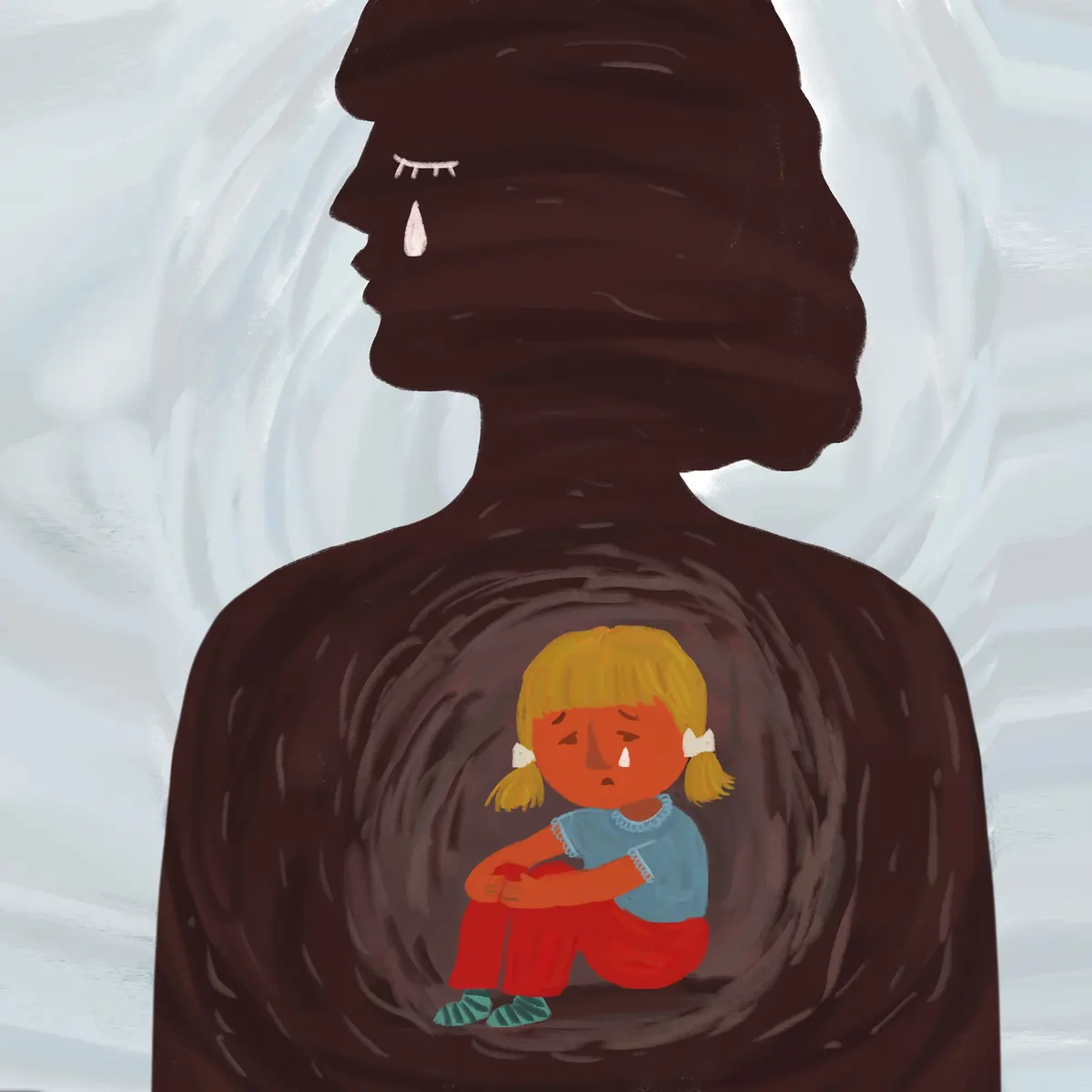In recent years, the conversation surrounding mental health has expanded, shedding light on the complexities and nuances that encompass our psychological well-being. While adults have traditionally been the focus of mental health discussions, it’s becoming increasingly evident that children and adolescents are not exempt from experiencing mental health challenges. As we delve deeper into this realm, it becomes apparent that understanding mental health disorders in children is akin to navigating a spectrum – a spectrum filled with diverse experiences, symptoms, and outcomes.
As we embark on a journey to explore the multifaceted landscape of mental health disorders in children. From anxiety and depression to attention-deficit/hyperactivity disorder (ADHD) and autism spectrum disorder (ASD), we aim to unravel the intricacies of these conditions, delving into their manifestations, potential causes, and available interventions. Our goal is to foster a greater understanding and awareness of these disorders, empowering parents, educators, and caregivers to recognize the signs, provide support, and advocate for the well-being of the children in their lives.
Mental Health in Children: A Comprehensive Overview
Understanding the intricacies of mental health in children is essential for promoting their well-being and development. From infancy through adolescence, children navigate a wide range of emotional, behavioral, and psychological challenges that can impact their mental health. Factors such as genetics, environment, and early experiences play significant roles in shaping their mental health trajectories.
By comprehensively examining various aspects of children’s mental health, including common disorders, protective factors, and intervention strategies, we can better equip parents, caregivers, and educators to support children’s emotional resilience and thriving. This overview serves as a foundational guide, paving the way for deeper exploration into specific disorders and issues affecting children’s mental health.
Early Signs of Mental Health Concerns in Kids
Recognizing early signs of mental health concerns in children is crucial for early intervention and support. While children may not always articulate their feelings or experiences clearly, there are observable behaviors and symptoms that may indicate underlying emotional distress or mental health disorders.
These signs can manifest in various forms, including changes in mood, sleep disturbances, appetite changes, social withdrawal, academic struggles, or unexplained physical complaints. By paying attention to these early indicators and seeking professional guidance when needed, parents, caregivers, and educators can play a proactive role in addressing children’s mental health needs and promoting positive outcomes.
Anxiety Disorders in Children: Types and Symptoms
Anxiety disorders are among the most common mental health issues affecting children, impacting their daily functioning and quality of life. From generalized anxiety to specific phobias and separation anxiety, children may experience a range of anxiety disorders, each characterized by distinct symptoms and triggers.
Common signs of anxiety in children may include excessive worry, fearfulness, avoidance behaviors, physical symptoms such as stomachaches or headaches, and difficulty concentrating. By understanding the different types of anxiety disorders and their symptoms, caregivers and professionals can implement appropriate interventions, such as cognitive-behavioral therapy or medication, to help children manage their anxiety and build coping skills.

Childhood Depression: Symptoms and Treatments
Depression is not exclusive to adults; it can also affect children and adolescents, posing significant challenges to their emotional well-being and functioning. Childhood depression manifests differently from adult depression and may present as irritability, social withdrawal, changes in appetite or sleep patterns, academic decline, or physical complaints. Left untreated, depression in children can have serious consequences, including academic difficulties, substance abuse, and increased risk of self-harm or suicide.
Early identification and intervention are essential for supporting children with depression. Treatment approaches may include therapy, medication, lifestyle modifications, and support from family and school systems to help children manage their symptoms and regain a sense of hope and resilience.
Understanding ADHD in Children
Attention-deficit/hyperactivity disorder (ADHD) is a neurodevelopmental disorder characterized by persistent patterns of inattention, hyperactivity, and impulsivity that can significantly impair children’s daily functioning and academic performance. Children with ADHD may struggle with tasks requiring sustained attention, organization, time management, and impulse control, leading to challenges in various settings, including home, school, and social interactions. While the exact causes of ADHD are not fully understood, genetic, environmental, and neurological factors are believed to contribute to its development.
Effective management of ADHD often involves a multimodal approach, including behavioral interventions, educational accommodations, parent training, and, in some cases, medication to address symptoms and enhance children’s functioning and quality of life.
Autism Spectrum Disorder (ASD): Diversity and Support
Autism spectrum disorder (ASD) is a complex neurodevelopmental condition characterized by challenges in social communication and interaction, as well as restricted interests and repetitive behaviors. ASD encompasses a broad spectrum of presentations, ranging from mild to severe, and can co-occur with other conditions, such as intellectual disabilities, ADHD, or anxiety disorders. While the exact causes of ASD remain unknown, a combination of genetic and environmental factors is thought to contribute to its development.
Early intervention is crucial for children with ASD to promote their social and communication skills, adaptive functioning, and overall well-being. Supportive interventions, such as applied behavior analysis (ABA), speech therapy, occupational therapy, and social skills training, can help children with ASD thrive and reach their full potential.
Trauma's Impact on Childhood Mental Health

Exposure to trauma can have profound and lasting effects on children’s mental health, shaping their emotional, cognitive, and behavioral responses to stressors and adversity. Traumatic experiences, such as abuse, neglect, violence, natural disasters, or loss of a loved one, can disrupt children’s sense of safety, trust, and security, leading to a wide range of psychological symptoms and difficulties.
These may include post-traumatic stress disorder (PTSD), anxiety, depression, behavioral problems, substance abuse, and difficulties forming healthy relationships. Recognizing the signs of trauma and providing trauma-informed care are essential for supporting children’s healing and recovery. Interventions such as trauma-focused therapy, supportive counseling, and creating safe and nurturing environments can help children regain a sense of stability, resilience, and hope in the aftermath of trauma.
Behavioral Disorders: ODD and CD
Oppositional defiant disorder (ODD) and conduct disorder (CD) are disruptive behavior disorders characterized by persistent patterns of defiance, aggression, and rule-breaking behaviors that significantly impair children’s relationships, academic performance, and social functioning. Children with ODD may exhibit hostile, disobedient, and argumentative behaviors toward authority figures, while those with CD may engage in more serious violations of social norms and rules, such as lying, stealing, vandalism, or physical aggression.
These behavioral disorders often co-occur with other mental health issues, such as ADHD, depression, or substance abuse, and can have long-term implications for children’s development and well-being. Early intervention, including behavior management strategies, family therapy, and school-based interventions, is crucial for addressing ODD and CD and promoting positive outcomes for children and adolescents.
Eating Disorders in Children: Signs and Support
Eating disorders, such as anorexia nervosa, bulimia nervosa, and binge-eating disorder, are serious mental health conditions that can affect children and adolescents, leading to severe physical and psychological consequences if left untreated. These disorders are characterized by disturbances in eating behaviors, body image concerns, and excessive preoccupation with weight and shape. Children with eating disorders may engage in restrictive eating, binge eating, purging behaviors, or excessive exercise to control their weight or shape, often leading to malnutrition, dehydration, and medical complications.
Early identification and intervention are critical for addressing eating disorders in children and preventing long-term health consequences. Treatment approaches may include nutritional counseling, therapy, family-based interventions, medical monitoring, and support from multidisciplinary teams to address the complex factors contributing to these disorders and promote recovery and healing.
Learning Disabilities and Mental Health
Learning disabilities are neurodevelopmental disorders that affect children’s ability to acquire, process, or retain information, leading to difficulties with academic achievement, reading, writing, math, or other cognitive skills. Children with learning disabilities may experience challenges in various domains, including attention, memory, language, and executive functioning, which can impact their self-esteem, motivation, and emotional well-being. While learning disabilities are not mental health disorders per se, they often co-occur with mental health issues, such as anxiety, depression, or ADHD, due to the stress and frustration associated with academic struggles.
Early identification and intervention are essential for supporting children with learning disabilities and promoting their academic success and emotional resilience. Educational accommodations, individualized instruction, specialized tutoring, assistive technology, and interventions targeting specific skill deficits can help children with learning disabilities access the curriculum, build confidence, and develop compensatory strategies to overcome academic challenges.
Neurodevelopmental Disorders: Overview and Support
Neurodevelopmental disorders encompass a group of conditions that affect the development and functioning of the brain, leading to difficulties in cognition, communication, social interaction, motor skills, or adaptive behavior. These disorders include ADHD, autism spectrum disorder (ASD), intellectual disabilities, specific learning disorders, and motor disorders, such as cerebral palsy. While each neurodevelopmental disorder has its unique features and challenges, they often co-occur with one another and share overlapping symptoms and risk factors.
Early identification and intervention are critical for addressing neurodevelopmental disorders and promoting children’s optimal development and functioning. Supportive interventions, such as early intervention programs, individualized education plans (IEPs), therapy, and specialized services, can help children with neurodevelopmental disorders reach their full potential and participate fully in society.
Conclusion
As we conclude our journey through the diverse spectrum of mental health disorders in children, it’s evident that knowledge and understanding are essential tools in fostering resilience and promoting well-being. At Resilient Mind Counseling, we’re committed to providing compassionate and effective support for children and families navigating the complexities of mental health challenges. Our team of experienced therapists specializes in working with children, offering individualized treatment plans tailored to their unique needs and strengths. Whether your child is struggling with anxiety, depression, ADHD, or any other mental health issue, we’re here to help. Together, let’s embark on a journey towards healing, growth, and resilience. Contact Resilient Mind Counseling today to learn more about our services and take the first step towards a brighter tomorrow.














